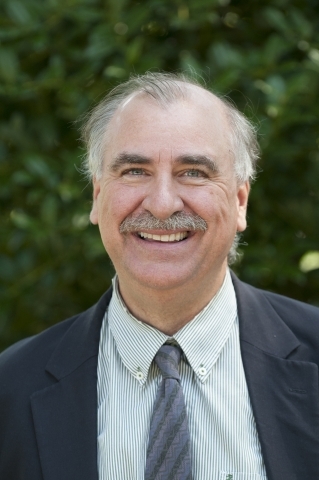 Psychology professor Scott Browning, Ph.D., ABPP, was recently re-elected for a third term to the American Board of Couple and Family Psychology (ABCFP).
Psychology professor Scott Browning, Ph.D., ABPP, was recently re-elected for a third term to the American Board of Couple and Family Psychology (ABCFP).
Browning will serve a two-year term as secretary of the ABCFP, a division of the American Board of Professional Psychology. Each member must have board certification in couple and family psychology and be considered nationally as experts in the field. He served his two previous terms as an at-large member.
The ABCFP is responsible for determining the criteria required for board certification, such as supplying the definitions and parameters for its education, training, competencies and examination. The board is also charged with, among other things, administering the exam and certifying successful candidates.
Browning said he is eager to continue his work on the board as he believes it serves an important role in the broader field of psychology.
“I think the field has to have benchmarks, which you need because people should know there are experts and scholarship in this specific field,” Browning said. “Since there’s such a lack of training in couple and family psychology, we’re determining how to make it clear who can fit the requirements and also coming up with alternatives that make it possible for people who really do know the field to get recognized.”
Establishing this criteria and ensuring that only the most qualified individuals enter the field are of consequence for patients and practitioners alike, Browning said. For instance, the methodology for practicing couple and family psychology differs from the approach taken in individual-based clinical psychology. In couple and family psychology, a systems-based approach is employed, and while it shares some similarities with the techniques traditionally used in individual therapy, it diverges in significant ways.
Yet Browning said psychologists who lack formal training with couples and families nevertheless continue to see groups as patients, a decision that can impede progress for both the patient and the psychologist.
Therefore, if someone is going to practice couple and family psychology, Browning thinks they should be fully trained experts.
“I’m a big fan of both individual and systems therapy, and I don’t think there’s one right way to go,” he said. “But if you have an interest in working with more than one person, whether that be a couple or a family, and you believe, as I do, that what happens in a system is that pieces bounce off each other and that it’s impossible to make a single change that doesn’t influence others, then you want to know how to do systems work correctly. To not learn systems thinking is to disregard a whole way of working.”
Browning has taught psychology at Chestnut Hill College since 1988. This semester he is teaching two doctoral classes — one on family therapy with young children, and the other on the evidence-based practices of clinical psychology.
Serving on the ABCFP, Browning said, informs his work as a professor.
“It makes me teach about the perspective that interlinks systems thinking and standard clinical psychology,” he said. “So it has forced me to think more about what that means to link these two fields and then make it more a part of the student’s education.”
Cheryll Rothery, Psy.D., ABPP, a professor of psychology and chair and director of clinical training in the College’s department of professional psychology, said the College’s Psy.D. program is one of the very few doctoral psychology programs in the country that has a concentration in couple and family psychology. She said that Browning and his colleague Joseph Micucci, Ph.D., ABPP, a professor of psychology, have created a curriculum and corresponding publications that train future psychologists to effectively serve a variety of diverse and multifaceted couple and family constellations.
“While several members of Chestnut Hill College’s Psy.D. faculty hold this distinction, Dr. Browning's presence on the board means that he will be on the cutting edge of, as well as inform, developments in the specialty of couple and family psychology,” Rothery said. “His continued presence on the board in his new role as secretary will further enhance his development of the CHC curriculum and training in couple and family psychology, as will his significant contributions to the profession as a highly sought-after presenter and trainer — locally, nationally and internationally.”
In addition to teaching, Browning maintains a small practice and supervises at the Psychological Services Clinic of Chestnut Hill College in Flourtown. He provides consultation to the Anti-Violence Partnership of Philadelphia, too, where he works to address those suffering from intrafamilial homicide.
“The few cases I have, I still have because I like being in the field and the experience of doing psychotherapy,” Browning said.
In 2017, Browning was named a co-recipient of the American Psychological Association Division 43 award for “Distinguished Contributions to Family Psychology.” He was acknowledged for his special contributions to the advancement of teaching, research, public policy and practice in family psychology.
Also important to note is that Browning is a published author; he has co-authored one book and co-edited an additional three. At the moment he has a few articles slated for publication in various scholarly periodicals, such as the Journal of Psychotherapy Integration, with topics ranging from step-grandparenting to integrated therapy with obesity. He has also recently submitted a book proposal on intersectionality.
For the same reason he serves on the ABCFP, teaches at the College, supervises at the clinic, offers consultation and runs a practice, Browning enjoys writing and editing books because it allows for collaboration.
“I like working with other authors, and I like working with all my colleagues,” he said. “And that helps me to be much more productive.”
For more information, please visit www.abpp.org.
- Kevin Dicciani





